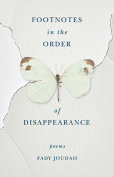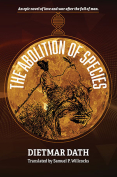Ms Ice Sandwich by Mieko Kawakami
 London. Pushkin Press. 2018. 92 pages.
London. Pushkin Press. 2018. 92 pages.
Ms Ice Sandwich is a delightful novella by Akutagawa Prize winner Mieko Kawakami (b. 1976) that asks us to join an unnamed narrator, with an obsessive interest in a sandwich vendor, as he tries to navigate the uncertain currents in his young life that have brought him to our attention.
Kawakami’s dialogue, fluidly rendered into English by Louise Heal Kawai, captures beautifully and with great humor the eager dynamism of a child’s mind, guided by chance association and whimsy, as the fourth-grade narrator tugs the reader into his world. From pocket money to school lunch to his mother embezzling funds from her bedridden mother-in-law to farts, his mind leaps hither and yon. Yet this light banter resolves itself, slowly, into a poignant consideration of relationships and their fragility. The underlying sense of transience harkens back to classical Japanese literature, to be sure, but this is no derivative work resting on the laurels of past greats. Neither is the narrator preternaturally aware, nor the vessel for some Kierkegaardian philosopher shoehorned into a boy’s consciousness; yet from the mouth of this babe—or, more appropriately, from the mouth of his female friend, Tutti—come tender, insightful observations on the pain of loss and the necessity of living an authentic life.
The narrator does not, of course, articulate it this way. He grapples with his deep concern about the gossip targeted at his obsession by talking to his dying, mute grandmother. This is the only refuge he has, for his emotionally distant mother, a medium, evinces little interest in his problems. His nonnormative home life, within which his tribulations seem only amplified, finds a gentle, liberating resonance with Tutti’s equally unusual home life focused on films. His blossoming relationship with Tutti, borne of the trust he develops as he comes to understand their shared situation, allows him, finally, to live honestly. The struggle to achieve this liberation is the novella’s dénouement, and Kawakami handles it well, tying together loose threads while remaining faithful to the characterization of the young boy we have come to know. His life moves on, and he, for the moment, seems happy.
Erik R. Lofgren
Bucknell University






































